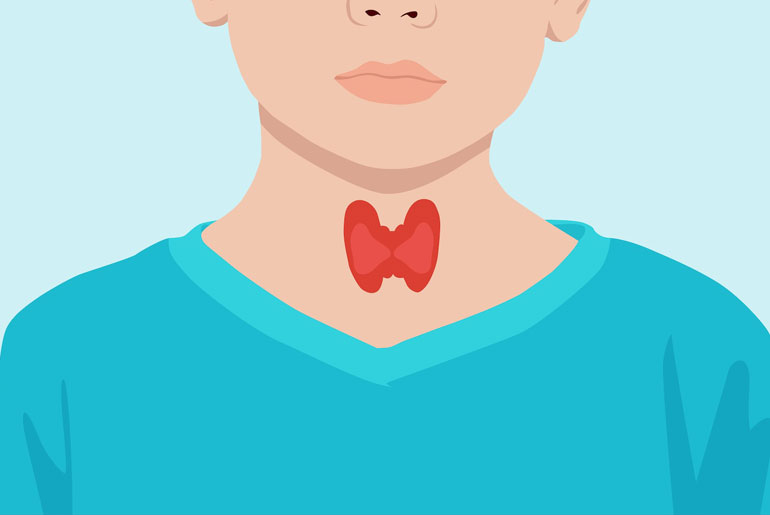An increasing number of people are experiencing autoimmune thyroid disorders, where the immune system mistakenly attacks the thyroid gland. This gland is vital for producing thyroxin, a hormone that regulates cellular metabolism, energy levels, and overall health. About 12% of the population may have an autoimmune response targeting their thyroid, often without being aware.
Major Triggers of Autoimmune Thyroid Disorders
1. Chronic Stress
Chronic stress elevates cortisol, the “stress hormone.” Prolonged high cortisol levels can disrupt immune balance, leading to overactivation and inflammation. For individuals genetically predisposed to autoimmune thyroid disorders, stress may initiate or worsen an immune attack on the thyroid.
2. Viral Infections
Viral infections are a common trigger for autoimmune thyroid disorders, particularly in those with genetic susceptibility:
- Epstein-Barr Virus (EBV): Known for causing infectious mononucleosis, EBV can mimic thyroid cells, potentially confusing the immune system into attacking both the virus and the thyroid.
- Other Viruses: Other suspected viruses include Coxsackievirus, mumps virus, human T-lymphotropic virus type 1 (HTLV-1), and parvovirus B19. These viruses may cause inflammation, activate dormant immune cells, or alter thyroid proteins, which can lead to an autoimmune response. However, not all people infected with these viruses will develop thyroid issues, as genetic factors also play a role.
3. Radiation Exposure
Radiation exposure, particularly around the head and neck area, is linked to thyroid autoimmunity. Radiation can damage thyroid cells, prompting the immune system to misinterpret damaged thyroid cells as foreign invaders. People with certain genetic variations may be more vulnerable to radiation-induced thyroid issues. Sources of radiation exposure include therapy for cancers near the thyroid, nuclear accidents, and environmental contamination.
Early Signs and Symptoms of Autoimmune Thyroid Disease:
Autoimmune thyroid disorders, such as Hashimoto’s thyroiditis and Graves’ disease, can manifest subtly, often with symptoms that are easily overlooked. Several common early symptoms:
- Fatigue: Persistent tiredness, even after sufficient sleep
- Weight Changes: Unexplained weight gain or difficulty losing weight
- Mood Swings: Increased anxiety, irritability, or depression
- Hair Loss: Noticeable thinning or loss of hair
- Dry Skin: Especially dry or itchy skin, often on elbows and knees
- Cold Intolerance: Sensitivity to cold even in warm temperatures
- Constipation: Difficulty in passing stools or infrequent bowel movements
Importance of Early Detection and Intervention
If you experience any of these symptoms, consulting a healthcare provider is essential for diagnosis and early intervention. Understanding these triggers and maintaining a balanced lifestyle can help manage risks, especially for those with a genetic predisposition to autoimmune thyroid conditions.
Disclaimer:
The information contained in this article is for educational and informational purposes only and is not intended as a health advice. We would ask you to consult a qualified professional or medical expert to gain additional knowledge before you choose to consume any product or perform any exercise.







